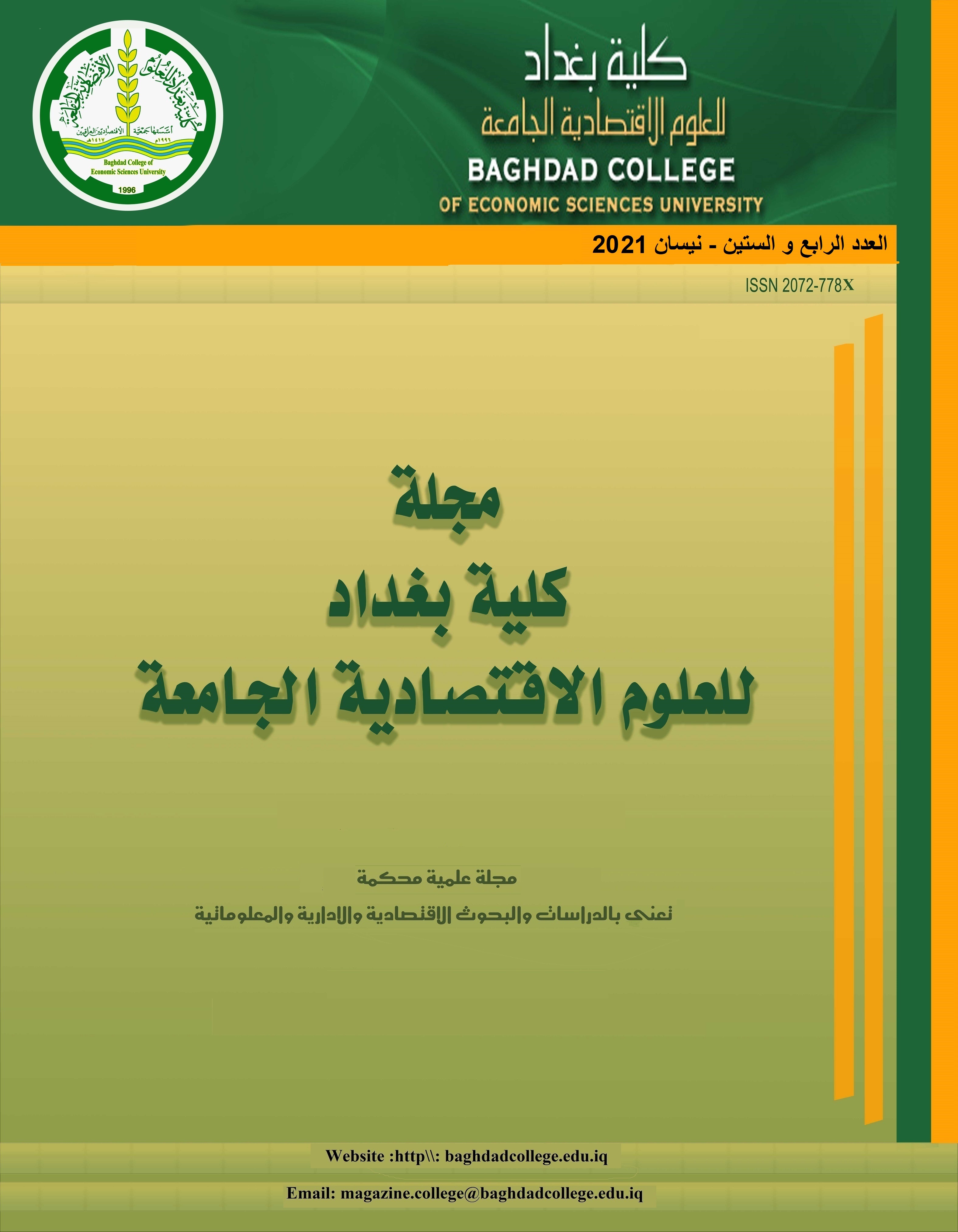Abstract
This study aims to examine influence of ethics of Senior administrative leaders in terms of (means ethics, character ethics and ends ethics) on the subordinates, by recruiting and implementing Bandura’s social learning theory as an transfer variable to these moral characteristics and behaviors shown by leaders to their subordinates through observation and imitation. In order to accomplish these goals a number of hypotheses on the study’s By adopting the analytical survey strategy, the study targeted three State technical universities covering all Iraqi provinces expect northern ones. The sample consisted of 15 colleges, institutes, training centers, and university divans with 225 employees: faculty, technicians, and administrators. Questionnaires were mainly used to collect data, Then data were analyzed and hypotheses were tested using a number of ready statistical programs, like )SPPS, Amos(. The results showed that ethics demonstrated by Senior Administrative , all reflect on strengthening behavioral reconciliation between administrative cadres and their subordinates, so that these leaderships become models; all that would be implemented after reviewing POV's and behaviors demonstrated by the subordinates themselves to establish the needed reconciliation in positive behaviors continually
Abstract
يهدف هذا البحث الى اختبار تاثير اخلاقيات القيادات الادارية العليا (الاخلاقيات الشخصية,اخلاقيات الوسائل,اخلاقيات الغايات) في المروسيين من خلال توظيف نظرية التعلم الاجتماعي ل (Bandura) كمتغيرا ناقلا لتلك الخصائص والسلوكيات الاخلاقية الى المرؤوسين من خلال عمليات الملاحظة والتقليد وجعل هؤلاء القادة الذين تتوافر فيهم هذه الخصائص نموذجا يحتذي به المرؤوسين. ولتحقيق تلك الاهداف فقد تم بناء واستنباط مجموعة من الفرضيات التي تبحث في متغيرات البحث وابعادها باعتماد ستراتيجية المسح التحليلي فقد استهدفت عملية البحث بشكل فعلي ثلاث جامعات تقنية من الجامعات العراقية الحكومية شملت محافظات القطر باستثناء الجهة الشمالية,تشمل(15) كلية ومعهد ومركزتدريبي وديوان جامعة وعلى عينة تمثلت ب (225) موظفا من تدريسي وفني واداري, وقد جرى الاستعانة بالاستبانة كاداة اساسية في جمع البيانات ثم بعد ذلك جرى تحليل البيانات واختبار الفرضيات بالاستعانة بعدد من البرامج الاحصائية الجاهزة (SPSS, Amos ) وقد اظهرت النتائج صحة اغلب فرضيات البحث بابعادها كلية او جزئية. وبالاعتماد عليها صيغت عدد من الاستنتاجات والتوصيات اهمها إن السلوكيات الأخلاقية التي تبديها القيادات الإدارية العليا في مجالاتها الثلاثة تنعكس على تعزيز التوافق السلوكي بين القيادة الإدارية و المرؤوسين لتكون تلك القيادات نموذجا يحتذى به بعد مراجعة الآراء والسلوكيات من قبل المرؤوسين أنفسهم لإحداث التوافق المطلوب في السلوكيات الايجابية بصورة مستمرة.
